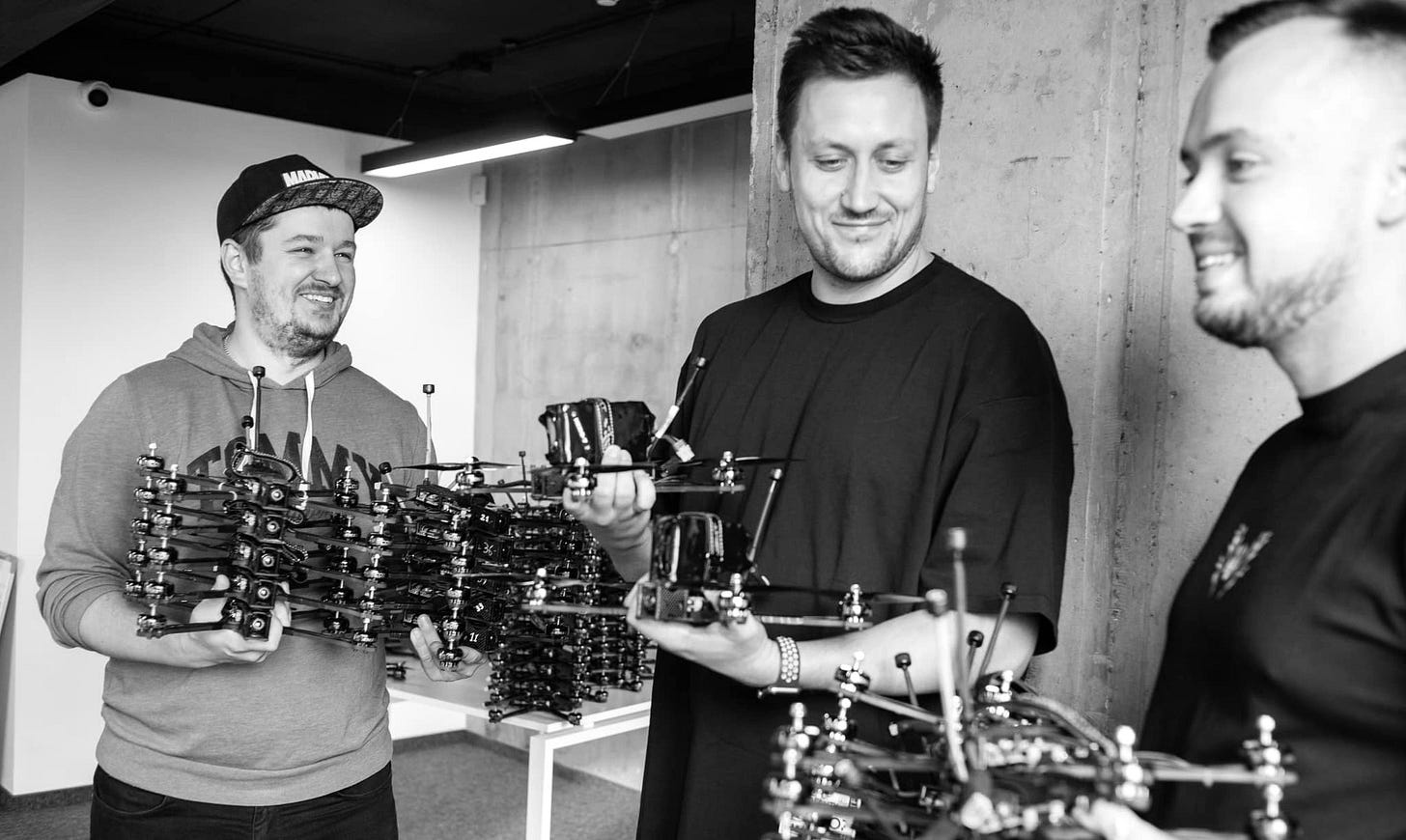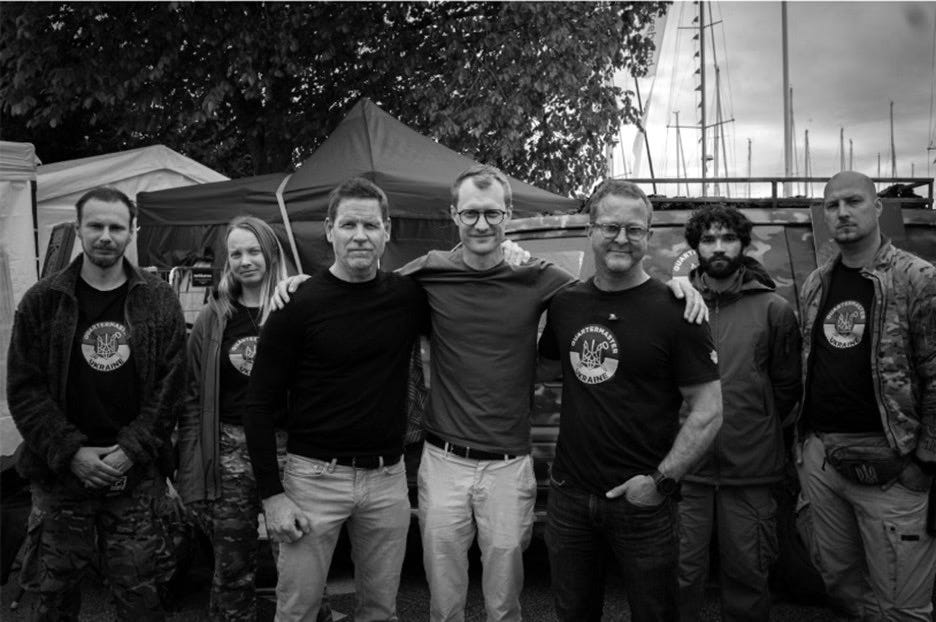Varangians, founded by Swedes, Emerges to Back Ukrainian Defence Tech
In the Middle Ages, Varangians were Viking warriors and traders who settled in lands that today include parts of modern-day Ukraine. Now it’s the name of a new investment firm backed by Swedish money
Earlier this month, at the Brave1 Defence Tech Valley conference, amidst a long list of other milestones for the country’s defence tech ecosystem, Ukraine’s minister for digital transformation Mykhailo Fedorov announced that a new investor had set up shop: Varangians, so named in reference to the Nordic warrior-merchants who settled along the Dnipro River in the Middle Ages.
Andreas Flodström is, too, a Varangian of sorts. A Swede who has spent 13 years operating in Ukraine as the founder of software development company Beetroot, he is now – like so many other tech people in the country – moving into defence tech.
Varangians, which Flodström established earlier this year, is an investment company devoted solely to defence tech.
Flodström, not an actual warrior himself, is flanked by two co-founders who were. Pär Lager, a former platoon commander in Swedish Home Guard, is responsible for the study of the Ukrainian wartime experience in the Swedish Defence University; Jonas Rydin, still an active serviceman of the Swedish Marine Corps, describes himself as a “defence entrepreneur.”
The firm has already made its first investment: it led a $1 million round into Norda Dynamics with participation also from Angel One, MITS Capital, United Angels Network, and Unpopular Ventures.
Varangians has two major goals, Flodström told Resilience Media: help Ukraine win the war and support the transformation of the European defence industry.
“We do not expect any money back until the war is over,” he said, adding that he believes there will be good returns on the investments in Ukrainian defence tech startups.
Varangians is structured as an investment company – not a fund. This means that “We can invest continuously as we raise money,” he said.
The company is also willing to invest directly into Ukrainian legal entities. Most other players in the field only work with those companies which have entities registered in the EU.
There are multiple reasons for concern. Investors see risks in the lack of intellectual property protection in Ukraine. Additionally, there is still no singular, transparent way to export defence products out of Ukraine. There have also been question marks over corruption and what legal enforcements are being put in place to fight that.
Flodström is well aware of these issues, for he has been encountering them in Ukraine since 2012.
“I understand how to handle them, they don’t scare us,” he said, noting that the legal framework is improving. Ultimately Varangians believe that by embracing the risks, more impact can be created.
This level of flexibility is enabled by the fact that the company has been supported by what Flodström described as “large Swedish family offices.” Over time, this will extend to family offices across the Nordics.
Outside of its investment in Norda, the Swedish firm has also met with roughly 70 startups in Ukraine over the last six months, he said.
Norda’s focus is an indicator of the kinds of firms that are catching Varangians’ eye. It develops an autonomy module called Underdog that, when installed on UAVs, enables them to continue the flight towards the target despite drops in signal strength or link quality. The company’s COO Dima Vovchuk recently claimed that Underdog has assisted in 40,000 frontline drone missions to date.
Norda Dynamics is not the only company working on autonomy-as-countermeasure in electronic warfare. So why invest in it, we asked Flodström.
“We try to invest in companies where we see that our support, smart money, can be helpful,” he replied. Additionally, the startup is focused on solving one particular challenge and not trying to run towards multiple goalposts.
“We understand the team and what they’re doing,” said Flodström.
Varangians spoke with customers – that is, active fighters – as part of its due diligence.
“We talked to the units who used them, so we could compare where they were 6 or 12 months ago with where they are now,” he said. It also vetted Norda products with contacts in the Swedish defence ecosystem.
That also speaks to the potential for customers outside of Ukraine itself, putting Norda (and other potential portfolio members) in competition with European counterparts. Varangians does not see this as a significant challenge: no Norda competitors will have “battlefield-proven” solutions, he said.
The round may be modest in value, but it is unlikely to be the last for Norda, nor for Varangians itself.
“Hopefully we will be able to announce a couple of more investments by the end of this year,” Frodstrom said.



